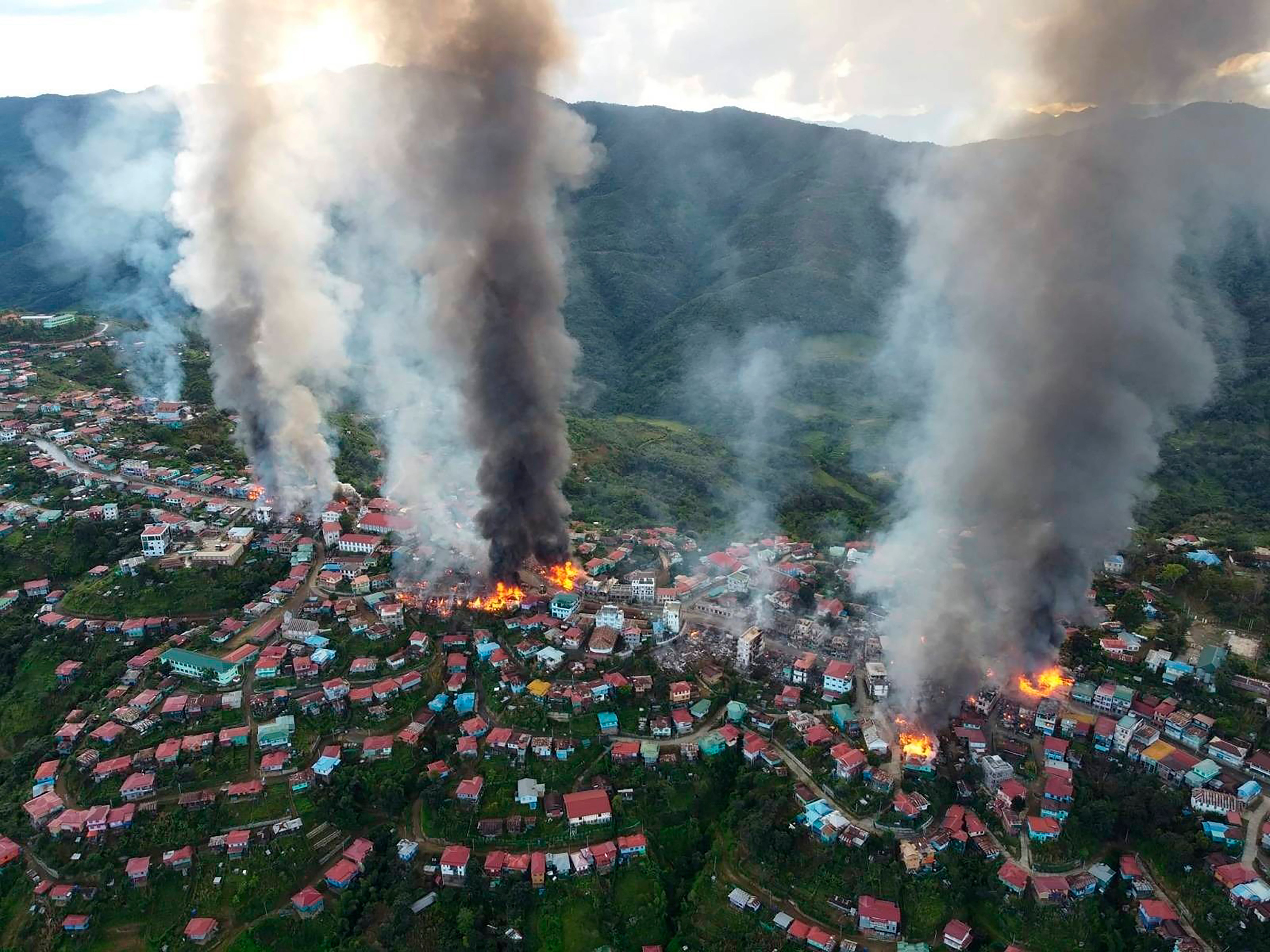UN says over 3 million in Myanmar need "life-saving" aid
The U.N. humanitarian chief is urging Myanmar’s military leaders to provide unimpeded access to the more than 3 million people in need of “life-saving" humanitarian assistance since government forces seized power on Feb. 1

The U.N. humanitarian chief urged Myanmar’s military leaders on Monday to provide unimpeded access to the more than 3 million people in need of life-saving humanitarian assistance since government forces seized power on Feb. 1 “because of growing conflict and insecurity, COVID-19 and a failing economy.”
Martin Griffiths also urged donors to respond to the U.N. appeal, saying less than half of the $385 million required has been raised since the military ousted the elected government of Aung San Suu Kyi
Grittith's statement was issued as members of the U.N. Security Council held a closed-door meeting on Myanmar requested by the United Kingdom
UK deputy ambassador James Kariuki told reporters before heading into the meeting that Britain is particularly concerned about the buildup of military action in northwest Chin state, “and we are concerned that this rather mirrors the activity we saw four years ago ahead of the atrocities that were committed in Rakhine against the Rohingya” Muslim minority.
“So, we’re very keen to make sure the council is focused and the military know that we’re watching,” he said.
The Feb. 1 military takeover followed November elections which Suu Kyi’s National League for Democracy party won overwhelmingly and the military rejects as fraudulent.
Since Suu Kyi’s ouster, Myanmar has been wracked by unrest, with peaceful demonstrations against the ruling generals morphing first into a low-level insurgency in many urban areas after security forces used deadly force and then into more serious combat in rural areas, especially in border regions where ethnic minority militias have been engaging in heavy clashes with government troops.
On Sept. 7, the National Unity Government, the main underground group coordinating resistance to the military which was established by elected legislators who had been barred from taking their seats when the military seized power, called for a nationwide uprising. Its “People’s Defense Forces” operate in many areas and have received training and weapons from some armed ethnic groups.
Christine Schraner Burgener told The Associated Press shortly before her 3 ½ year term as the U.N. special envoy for Myanmar ended on Oct. 31 that “civil war” has spread throughout the country.
She said the U.N. has heard that many soldiers are on the ground conducting “clearing operations” in Chin state, reminding the world that the military’s “clearing operation” in Rakhine state in 2017 saw villages burned down, widespread rapes and more than 700,000 Rohingya Muslims flee to neighboring Bangladesh.
Griffiths also said “the situation in the northwest of the country has become extremely concerning, with an escalation in hostilities between the Myanmar Armed Forces and the Chinland Defense Force in Chin state, and with the People’s Defense Forces in Magway and Sagaing regions.”
“More than 37,000 people, including women and children, have been newly displaced, and more than 160 homes have been burned, including churches and the offices of a humanitarian organization,” Griffiths said. “Attacks directed against civilians and civilian infrastructure, including humanitarian workers and facilities, are clearly prohibited under international humanitarian law and must stop immediately.”
Bookmark popover
Removed from bookmarks